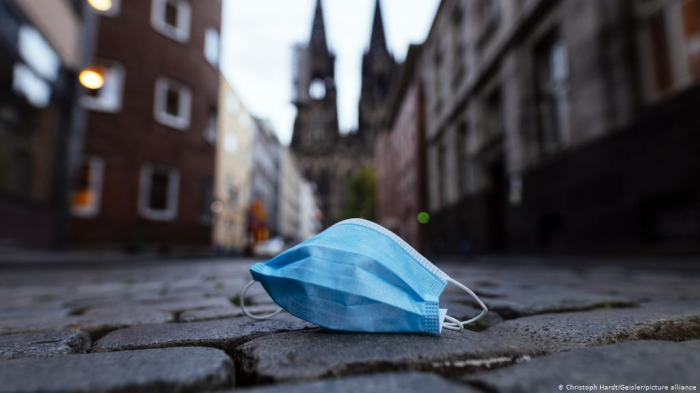A number of European countries have tightened coronavirus restrictions ahead of Christmas following a surge of infections in recent weeks.
The Netherlands has entered a five-week lockdown, with non-essential shops, theatres and gyms all closing.
Germany, meanwhile, will enter a hard lockdown from Wednesday after the number of infections hit record levels.
France has lifted its lockdown, but widespread measures remain in place as the infection rate is still high.
Italy, Spain, France and the UK are among the countries that have recorded the highest number of cases during the pandemic.
In recent weeks, governments around the continent have been wrestling with difficult questions about whether to ease restrictions in time for the holiday period.
But the recent wave of infections in some nations has prompted governments to halt plans to loosen the rules.
What measures are countries taking?
The five-week lockdown in the Netherlands is the strictest set of measures announced in the country since the pandemic began.
Non-essential shops, cinemas, hairdressers and gyms have all closed and schools will follow suit on Wednesday. People have also been told to refrain from booking non-essential travel abroad until mid-March.
But restrictions will be eased slightly for three days over Christmas, when Dutch households are allowed three instead of two guests.
Elsewhere, schools and non-essential shops will also close in Germany from Wednesday. Restaurants, bars and leisure centres have already been shut there since November.
The new German lockdown will run from 16 December to 10 January, but there will be a slight easing over Christmas when one household will be able to host a maximum of four close family members.
France has lifted its national lockdown, but the government said the infection rate had not lowered sufficiently for a further easing.
This means theatres and cinemas will remain shut as will bars and restaurants. A nationwide curfew will also be imposed from 20:00 to 06:00. The curfew will be lifted on Christmas Eve but not on New Year's Eve.
Meanwhile, Italy's daily death toll is still close to 500 and the government is considering a further tightening of measures over Christmas.
The exact details are unclear, but a new lockdown could come into place between Christmas night and New Year. Prime Minister Giuseppe Conte described the potential lockdown as a "new squeeze".
Spain has also seen a rebound in infections, and top health official Fernando Simón has warned of a "delicate" situation ahead of Christmas.
The Spanish government has approved a set of rules for the period between 23 December and 6 January.
Travel between regions will be allowed, providing people are visiting friends and family, and social gatherings will be limited to 10 people.
BBC
More about: Coronavirus
















































